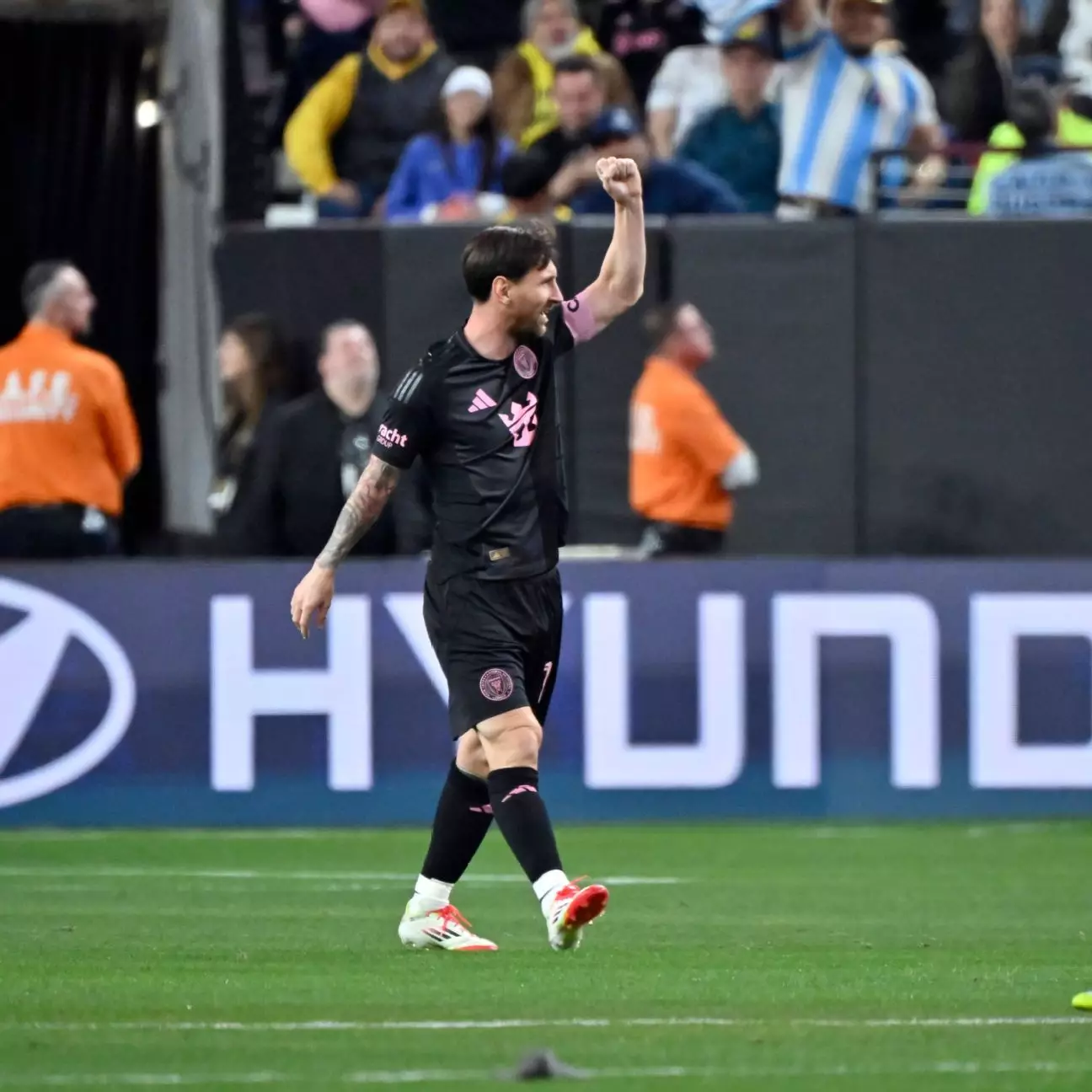The world of football, especially in international scenarios, often mirrors broader cultural tensions that stretch beyond the pitch. The recent friendly match between Inter Miami and Club América not only showcased the prowess of Lionel Messi but also reignited historical rivalries, particularly between Argentine and Mexican teams. Javier Mascherano, the head coach of Inter Miami, provided insights into this turbulent backdrop when he remarked on Messi’s controversial goal celebration, which referencing Argentina’s historical dominance in World Cup encounters with Mexico. The celebration, characterized by a “3-0” hand gesture symbolizing Argentina’s three World Cup victories compared to Mexico’s lack, exemplifies how sports can serve as a platform for nationalistic pride and competitive antagonism.
Messi’s provocative gesture could be interpreted in multiple ways—either as a playful banter or as a sharp jab at a rival nation still nursing wounds from past defeats. Mascherano downplayed the significance of this gesture, suggesting that there are more pressing matters for the team to focus on. Yet the incident raises questions about how such displays can exacerbate existing tensions between countries. The 2022 World Cup match, in which Mexico fell 2-0 to Argentina and exited early, remains a sore point for El Tri and adds complexity to the friendly match result. These cultural narratives, often shaped by historical context, can lead to heightened emotions during encounters between teams from these nations.
Coaches, like Mascherano, play a crucial role not only in strategizing on-field play but also in managing the emotional landscape surrounding their teams. He acknowledged a pattern of hostility from Mexican teams towards Argentinians, a sentiment that has existed for years. This historical animosity, rooted in competitive clashes and differing football philosophies, doesn’t just affect player performance but manifests in fan interactions as well. The intricate dynamic of rivalry can be both invigorating and detrimental, as it influences how players approach matches against known competitors. Mascherano’s experience of having played against Mexican teams gives him a unique perspective, allowing him to anticipate the hostile environment and prepare his squad accordingly.
Interestingly, despite the palpable tensions during matches, the sportsmanship displayed post-game can sometimes bridge the divide, as seen when coaches and players from both Inter Miami and Club América shared hugs after the match. This moment serves as a reminder that while rivalries can be fierce, the love for the game often fosters friendships and mutual respect beyond the final score. Such gestures can humanize athletes in the eyes of fans and promote a sense of unity in the sport. The significance of camaraderie cannot be overstated, as it helps to soften the blows of defeat and celebrate the victories.
As Inter Miami moves forward, preparing for a new phase of pre-season matches against teams in Peru, Panama, and Honduras, Mascherano’s focus shifts to refining his squad’s on-field performance. He expressed a desire to maintain greater possession of the ball, a fundamental aspect of their proposed style of play, which has been a challenge in recent encounters. The team seems poised for a rigorous training regime with no reported injuries, which could enhance their competitiveness. Mascherano’s remarks about player readiness reflect a tactical shift aimed at improving previous shortcomings and instilling a more cohesive gameplay strategy.
The narratives surrounding matches like the one between Inter Miami and Club América are rich and layered, tangled in threads of history, rivalry, and sportsmanship. The moments that provoke strong reactions—like Messi’s celebration—speak volumes about the identities and emotions tied to these sporting events. While the matches themselves are contests of skill and strategy, they are also reflections of deeper societal narratives that invite audiences to engage on multiple levels. As Inter Miami prepares for its upcoming challenges, the balance between embracing competitive drive and fostering a spirit of unity continues to shape their journey in the world of football.

